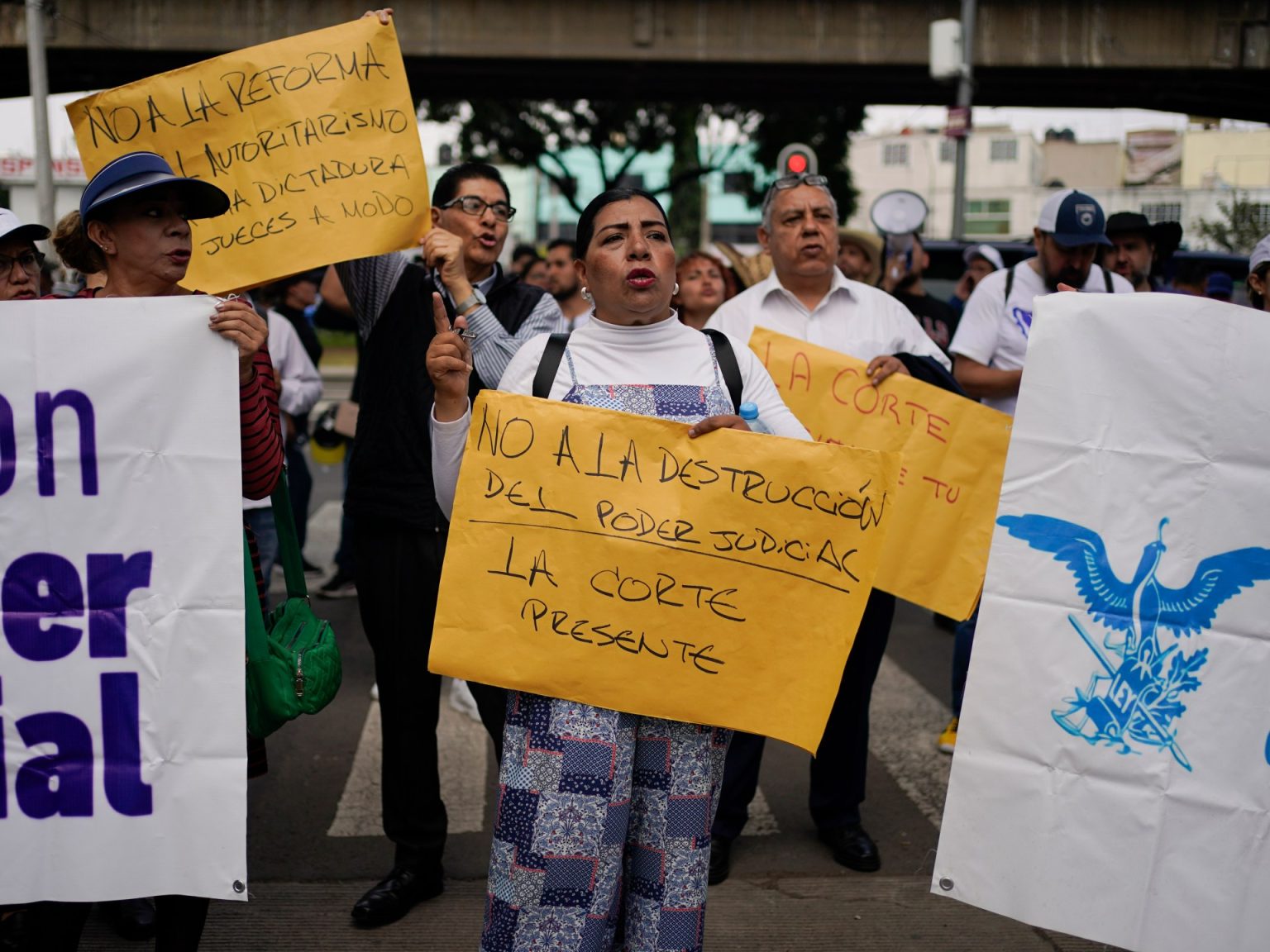The Mexican President Andres Manuel Lopez Obrador has succeeded in passing a judicial overhaul through the lower house of Mexico despite widespread protests and an ongoing strike by federal court employees, justices, and magistrates. The bill includes provisions that would erode the independence of the judiciary, including allowing federal justices to be elected by popular vote. Critics argue that these changes do not address the actual issues plaguing the judicial system and are concerned that this will lead to a weakening of the judiciary.
Opposition legislator Paulina Rubio Fernandez expressed her concerns before the vote, accusing the Morena party of starting the fall of the republic by supporting the bill. The measure passed in an initial party-line vote of 359-135 and is now set to be sent to the Senate for further debate. Supermajority votes are required in both chambers due to the bill including constitutional changes, but the Morena party is expected to eventually pass the bill despite being one seat short of a supermajority in the Senate.
President Lopez Obrador has argued that these changes are necessary to root out corruption and democratize the judiciary, which he claims has been influenced by organized crime. However, several legal organizations and experts have criticized the reforms, pointing out that the real issues lie with prosecutors, police, and public ministries. The United States and Canada have also expressed concerns about the reforms, with the US Ambassador warning that it could damage relations and negatively affect investment and the Mexican economy.
The proposed changes would allow any lawyer with minimal qualifications to run for federal judge positions, effectively opening up the selection process. Additionally, “hooded judges” would preside over organized crime cases, with their identities kept secret to prevent reprisals. The reforms would also limit the judiciary’s power to block government projects or laws based on citizen appeals, shifting more control to the executive branch. Critics argue that these changes would ensure the president’s party retains significant political power long after Lopez Obrador’s term ends.
Before the vote, Supreme Court judges announced their support for the ongoing strike against the reforms. They stated that they would be undertaking a suspension of activity while still handling urgent cases. The proposed changes have sparked significant backlash from judicial workers and legal experts who believe that the reforms will lead to a weakening of the judiciary and erode the system’s independence. Despite the protests and criticism, it is expected that the bill will eventually pass through the Senate and be implemented as part of President Lopez Obrador’s efforts to overhaul the Mexican judiciary.


